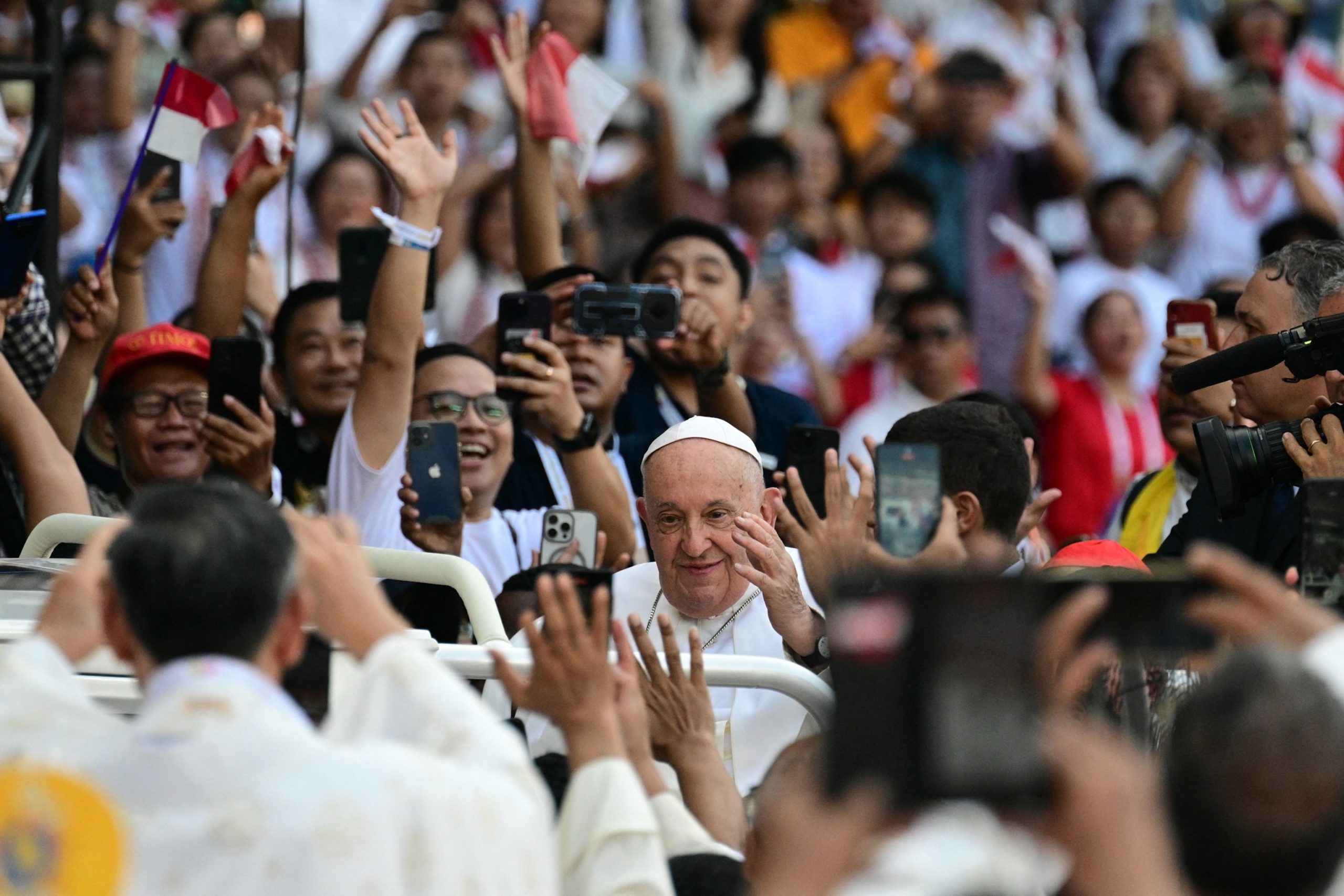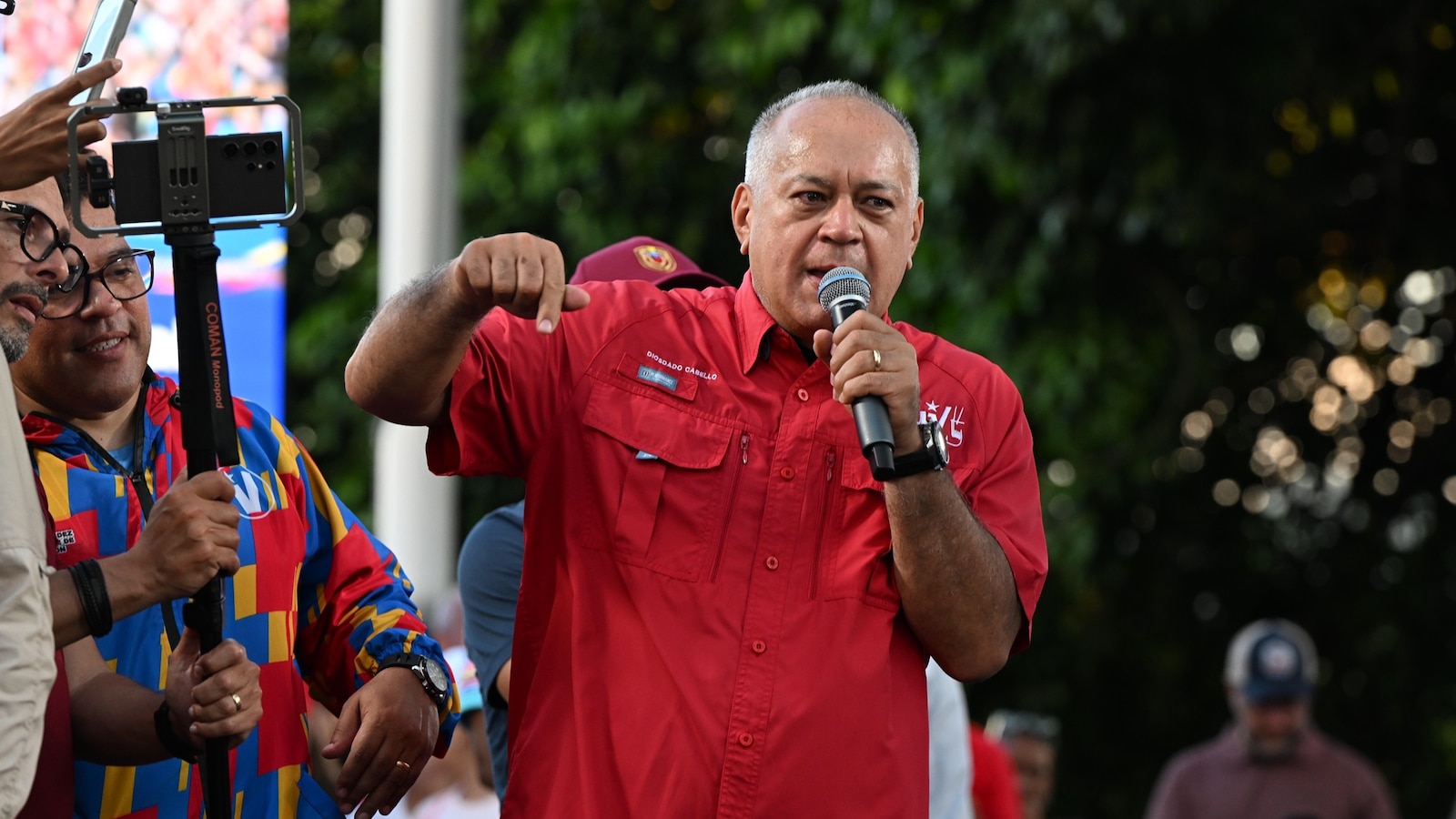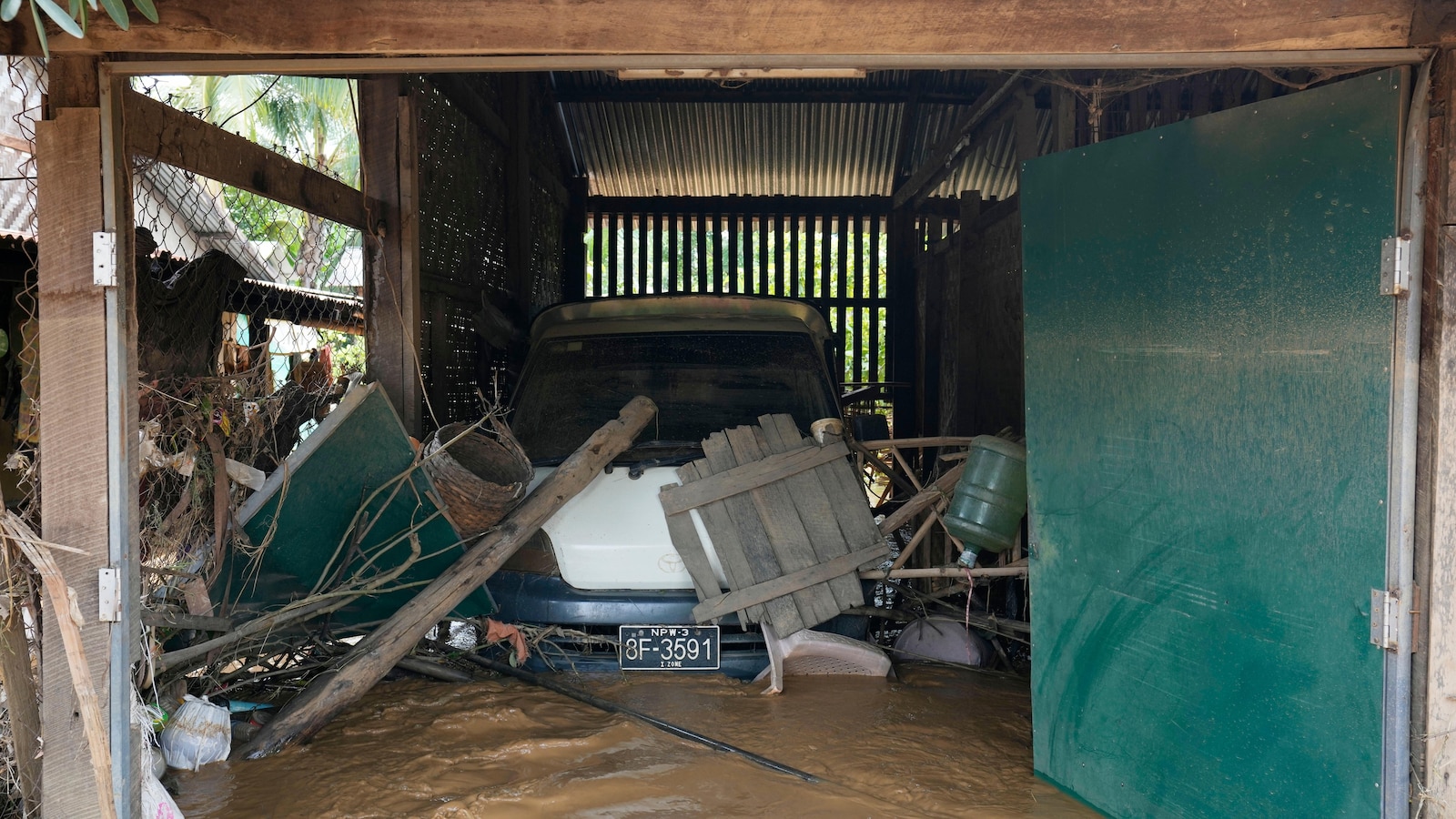JAKARTA, Indonesia — As he continues to promote religious harmony, Pope Francis visited Jakarta’s Istiqlal Mosque, the largest mosque in Southeast Asia, on Thursday.
Together with the country’s Grand Imam and other religious leaders, he signed a joint declaration rejecting violence linked to religious extremism and climate change.
The declaration says it is “worrying” that religion is being used to promote violence around the world, while climate change “has become an obstacle to the harmonious coexistence of peoples.”
Francis later said wars and conflicts are caused at times by the “manipulation of religion” and continued to call for greater interfaith dialogue.
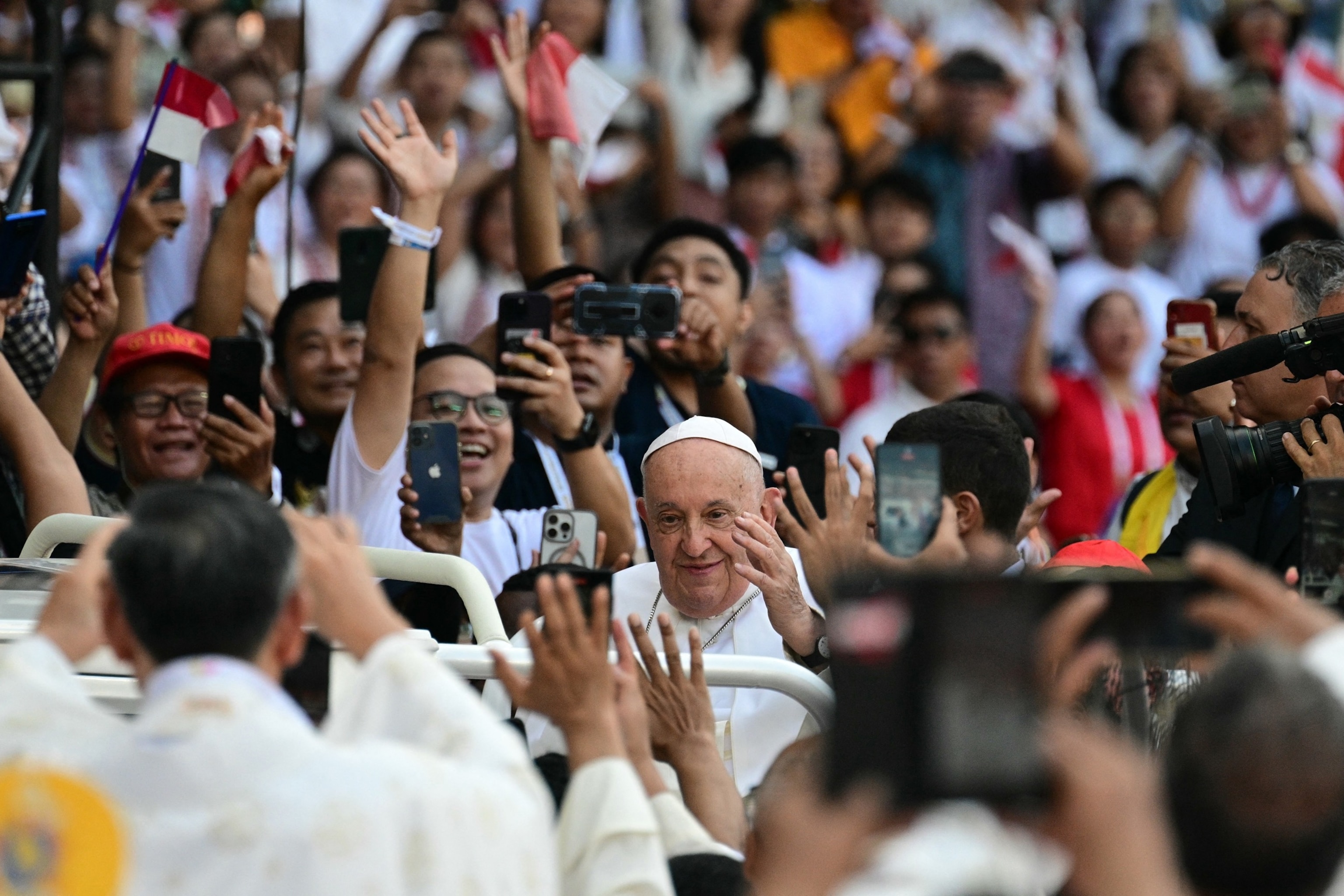
Pope Francis arrives to lead the holy mass at the Gelora Bung Karno Stadium in Jakarta, Indonesia, on Sept. 5, 2024.
Tiziana Fabi/AFP via Getty Images
Religious harmony has been a key part of the Pope’s message on this first leg of his 12-day trip. Indonesia is the world’s largest Muslim-majority country, with Catholics making up just 3% of its population, and Francis has repeatedly praised the way different cultures and religions are able to peacefully coexist here.
On Thursday Francis also visited the “Tunnel of Friendship” linking Istiqlal to the Catholic Church just across the street — symbolic, he said, of how different religions can be “connected.”
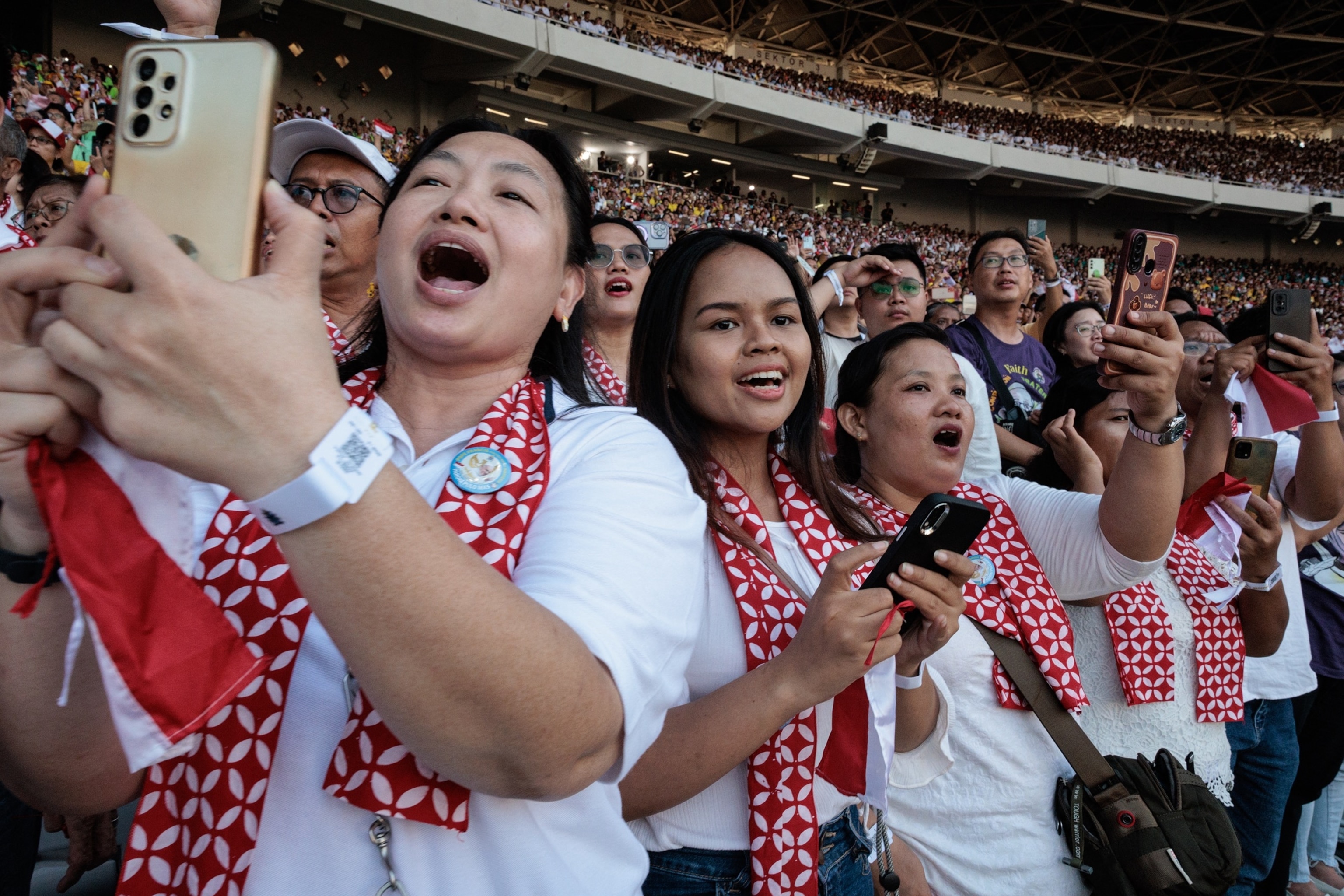
People sing together as Pope Francis arrives for a holy mass at the Gelora Bung Karno Stadium in Jakarta, Indonesia, on Sept. 5, 2024.
Yasuyoshi Chiba/POOL/AFP via Getty Images
“In the face of today’s many challenges, we respond with the sign of fraternity,” he said. “Indeed, by welcoming others and respecting their identity, fraternity urges them on a common path travelled in friendship, and leading towards the light.”
Earlier in the week, Francis praised the “magnificent mosaic” that makes up Indonesian society and said the Catholic Church desires to increase interfaith dialogue, so as to tackle religious extremism.
Though he did not mention any specific countries, the Pope at a meeting with Indonesia’s President Joko Widodo spoke of violent conflicts linked to religious intolerance and the desire to let “one’s own partial historical narrative prevail at all costs, even when this leads to endless suffering for entire communities and results in wars and much bloodshed.”
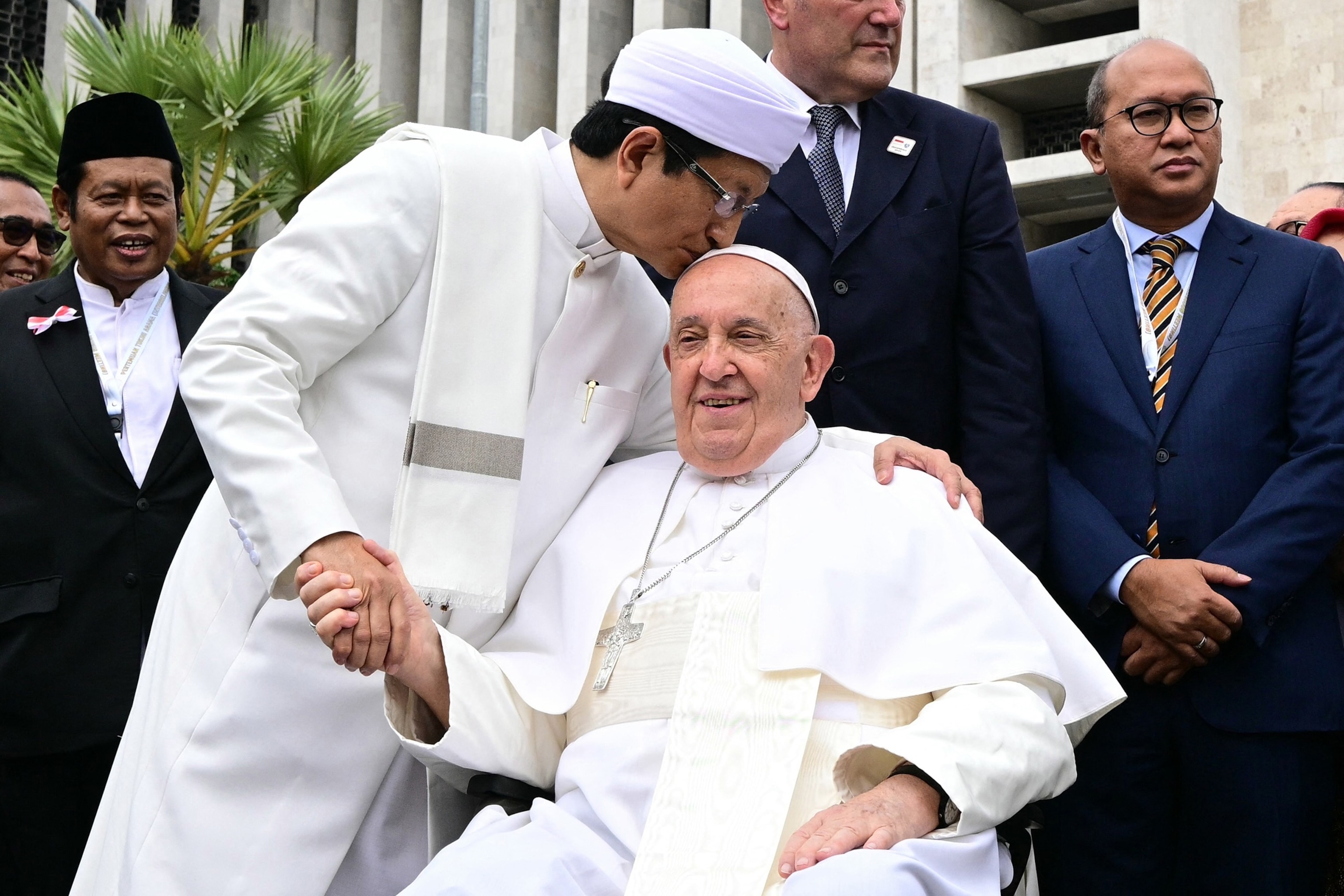
Grand Imam of Istiqlal Mosque Nasaruddin Umar shakes hands with Pope Francis after an interreligious meeting with religious leaders at the Istiqlal Mosque in Jakarta on September 5, 2024.
Tiziana Fabi/POOL/AFP via Getty Images
“The Catholic Church desires to increase interreligious dialogue,” Francis said.
“This is indispensable for meeting common challenges, including that of countering extremism and intolerance, which through the distortion of religion attempt to impose their views by using deception and violence,” he said.
The Pope, who is traveling on the longest trip of papacy, landed in Jakarta on Tuesday. He’s traveling under the motto “Faith, fraternity, compassion.”
Pope Francis, the leader of the Catholic Church, recently visited Indonesia as part of his ongoing efforts to promote religious harmony and peace around the world. During his visit, he met with religious leaders from various faiths and communities to discuss the importance of interfaith dialogue and cooperation in combating violent extremism-driven conflicts.
Indonesia, the world’s largest Muslim-majority country, has been plagued by religious tensions and conflicts in recent years. Pope Francis used his visit as an opportunity to denounce the violence and discrimination that have been fueled by extremist ideologies, calling for unity and understanding among people of different faiths.
In a speech delivered at a interfaith gathering in Jakarta, Pope Francis emphasized the need for mutual respect and tolerance among followers of different religions. He stressed the importance of building bridges of understanding and cooperation, rather than walls of division and hatred.
The Pope’s message of peace and harmony resonated with many Indonesians, who have long struggled to overcome the legacy of religious conflicts and violence in their country. His visit served as a powerful reminder of the shared values and beliefs that unite people of different faiths, and the need to work together to build a more peaceful and inclusive society.
Pope Francis also met with Indonesian President Joko Widodo during his visit, discussing ways to promote interfaith dialogue and cooperation in the fight against extremism. The two leaders reaffirmed their commitment to working together to address the root causes of religious conflicts and promote a culture of peace and tolerance in Indonesia and beyond.
Overall, Pope Francis’s visit to Indonesia was a powerful symbol of hope and unity in a world that is often torn apart by religious divisions and conflicts. His message of peace and harmony serves as a reminder that, regardless of our differences, we are all members of the same human family, and must strive to live together in peace and mutual respect.
